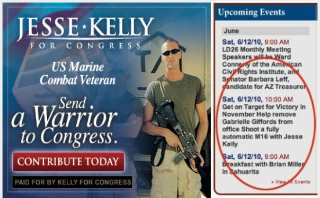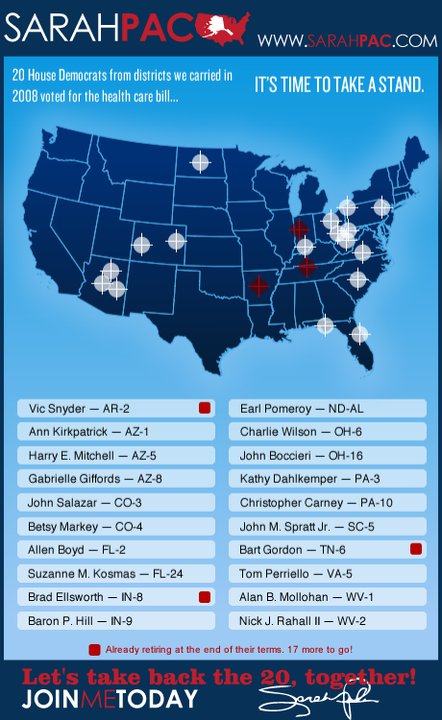President Obama’s Tucson Memorial Speech
Original Huffington Post article
Will We Heed President Obama’s Call for a More Empathic Society?
In a memorial service held in Tucson, Arizona for victims of the recent tragedy, President Obama called on Americans to “sharpen our instincts for empathy” so that we can become a more civil people.
The President’s call for a more empathic culture and civil society raises the troubling question of “What has gone so terribly wrong with America?” Why are we becoming more aggressive, violent, self-interested and intolerant as a society? The problem goes deeper than just blaming the escalating rhetoric of political pundits and talk show hosts. They are playing off a deeper sensibility that has become engrained in the thinking of many Americans.
It is our core beliefs about the very nature of human beings that make us so susceptible to the rising plague of intolerance that is spreading across the land. The American character was forged, in large part, on a skewed idea about who we are as a people that was spawned several hundred years ago in the Protestant Reformation and English Enlightenment.
From the very moment John Winthrop and his flock of Puritans landed on American shores in 1630, we came to believe that we are God’s chosen people and that the Lord has a unique covenant with us that makes us special among the peoples of the world. In our economic life, we have become the fiercest supporters of Adam Smith’s belief that the naked pursuit of individual self-interest in the market is the defining feature of human nature. In our political life, we have come to believe in “American Exceptionalism,” that our political ideology is somehow superior to all others. In our social life, we are the strongest supporters of Social Darwinism, that life is a combative struggle in which only the strongest survive. These highly regarded core beliefs are antithetical to a mature empathic sensibility.
It’s no wonder that when President Obama spoke of empathy during his first year in office and mentioned that it is the guiding philosophical principle in his life, he was pummeled and excoriated in the popular press as being weak and unfit to be the “Commander-in-Chief” of the most powerful nation on Earth.
What is there about the concept of empathy that conjures up so much derision? Why are some so frightened?
Perhaps it’s because being empathic requires giving up the pretense of being special and anointed. It means being mindful of other points of view. It means abandoning the idea that rank self-interest governs all behavior. And, most important, it means being open to the plight of others.
New discoveries in human evolutionary development are challenging our long held shibboleths about human nature. We are learning that human beings are biologically predisposed not for aggression, violence, self-interest and pleasure seeking utilitarian behavior but, rather, for intimacy and sociability, and that empathy is the emotional and cognitive means by which we express these drives.
To empathize is to experience another’s condition as if it was our own. It is to recognize their vulnerabilities and their struggle to flourish and be. To be able to empathize with another requires that we first acknowledge our own vulnerabilities. It is because we realize that life is fraught with challenges, that we are all imperfect, fragile and vulnerable, that life is precious and worthy of being treated with respect, that we are then able to reach out and, through our empathic regard, express our solidarity with our fellow beings. Empathy is how we celebrate each other’s existence. To empathize is to civilize.
Empathy is the real “invisible hand” of history. It is the social glue that has allowed our species to express solidarity with each other over ever broader domains. Empathy has evolved over history. In forager-hunter societies, empathy rarely went beyond tribal blood ties. In the great agricultural age, empathy extended past blood ties to associational ties based on religious identification. Jews began to empathize with fellow Jews as if in an extended family, Christians began empathizing with fellow Christians, Muslims with Muslims, and so on. In the Industrial Age, with the emergence of the modern nation-state, empathy extended once again, this time to people of like-minded national identities. Americans began to empathize with Americans, Germans with Germans, Japanese with Japanese. Today empathy is beginning to stretch beyond national boundaries to include the whole of humanity. We are coming to see the biosphere as our indivisible community, and our fellow human beings and creatures as our extended evolutionary family.
This doesn’t mean that our national loyalties, religious beliefs and blood affiliations are not important to us. But when they become a litmus test for defining the human sojourn, all other beliefs become the alien other.
For a long time, we Americans have been obsessed with “creating a more perfect union.” Maybe it is time to put equal weight on creating a more “empathic society.”
Original Huffington Post article
After Rep. Gabrielle Giffords was shot in the head and a number of others were wounded or killed in a shooting in Tucson, Ariz. on Saturday, Pima County Sheriff Clarence Dupnik said that the state has “become the mecca for prejudice and bigotry.”
Addressing the tragedy at a news conference, the sheriff said that law enforcement had reason to believe that Giffords was specifically targeted in the attack. He added that evidence suggests one suspect — 22-year-old Jared Loughner, who is already in custody — likely did not act alone.
“When you look at unbalanced people, how they respond to the vitriol that comes out of certain mouths about tearing down the government. The anger, the hatred, the bigotry that goes on in this country is getting to be outrageous,” said the sheriff. “And unfortunately, Arizona I think has become sort of the capital. We have become the mecca for prejudice and bigotry.”
When asked by a reporter if Giffords being shot could have been motivated by “prejudice and bigotry,” Dupnik responded, “All I can tell you is that there’s reason to believe that this individual may have a mental issue. And I think that people who are unbalanced are especially susceptible to vitriol.”
While speaking, the sheriff said that himself it included, “it’s not unusual for all public officials to get threats.” However, he said the sentiment doesn’t come without consequences.
“And that’s the sad thing of what’s going on in America,” he explained. “Pretty soon, we’re not going to be able to find reasonable, decent people who are willing to subject themselves to serve in public office.”
Original Huffington Post article by Marty Kaplan
I’m not saying that putting a bullseye on Arizona Democrat Rep. Gabrielle Giffords’ congressional race – as Sarah Palin did – was an explicit or intentional invitation to violence. Nor am I saying that the “Get on Target for Victory” events held by the guy Giffords beat – “Help remove Gabrielle Giffords from office Shoot a fully automatic M16 with Jesse Kelly” – was the reason her assassin went after her. This tragedy is still unfolding, and the questions of motive and incitement will be argued about for a long time to come.
But I am saying that the “lock and load”/”take up your arms” rhetoric of American politics isn’t just an overheated metaphor. For years, the language of sports has dominated political journalism, and discourse about hardball and the horserace and the rest of the macho athletic lexicon has been a factor in the trivialization of our public sphere. This has helped dumb down democracy, making a serious national discussion about anything important too wonky for words.
The “second amendment solution,” though, does something worse than make politics a branch of entertainment. It makes it a blood sport. I know politics ain’t beanbag. But words have consequences, rhetoric shapes reality, and much as we like to believe that we are creatures of reason, there is something about our species’ limbic system and lizard brainstems that makes us susceptible to irrational fantasies.
If you’re worried that violent video games may make kids prone to bad behavior; if you think that misogynic and homophobic rap lyrics are dangerous to society; if you believe that a nipple in a Superbowl halftime show is a threat to our moral fabric – then surely you should also fear that the way public and media figures have framed political participation with shooting gallery imagery is just as potentially lethal.


Original Huffington Post article
In the wake of Saturday’s tragic shootings in Arizona, which have claimed the lives of six individuals and left many more, including Congresswoman Gabrielle Giffords, critically injured, Keith Olbermann delivered an important message about the place of violence within our democracy.
Appearing on a special edition of “Countdown,” Olbermann told his audience that “we need to put the guns down. Just as importantly we need to put the gun metaphors away and permanently.”
Olbermann continued, “Left, right, middle – politicians and citizens – sane and insane. This morning in Arizona, this age in which this country would accept “targeting” of political opponents and putting bullseyes over their faces and of the dangerous blurring between political rallies and gun shows, ended.”
He concluded his special comment with this powerful statement, including an apology for his own actions: “Violence, or the threat of violence, has no place in our Democracy, and I apologize for and repudiate any act or any thing in my past that may have even inadvertently encouraged violence. Because for whatever else each of us may be, we all are Americans.”
Share this: